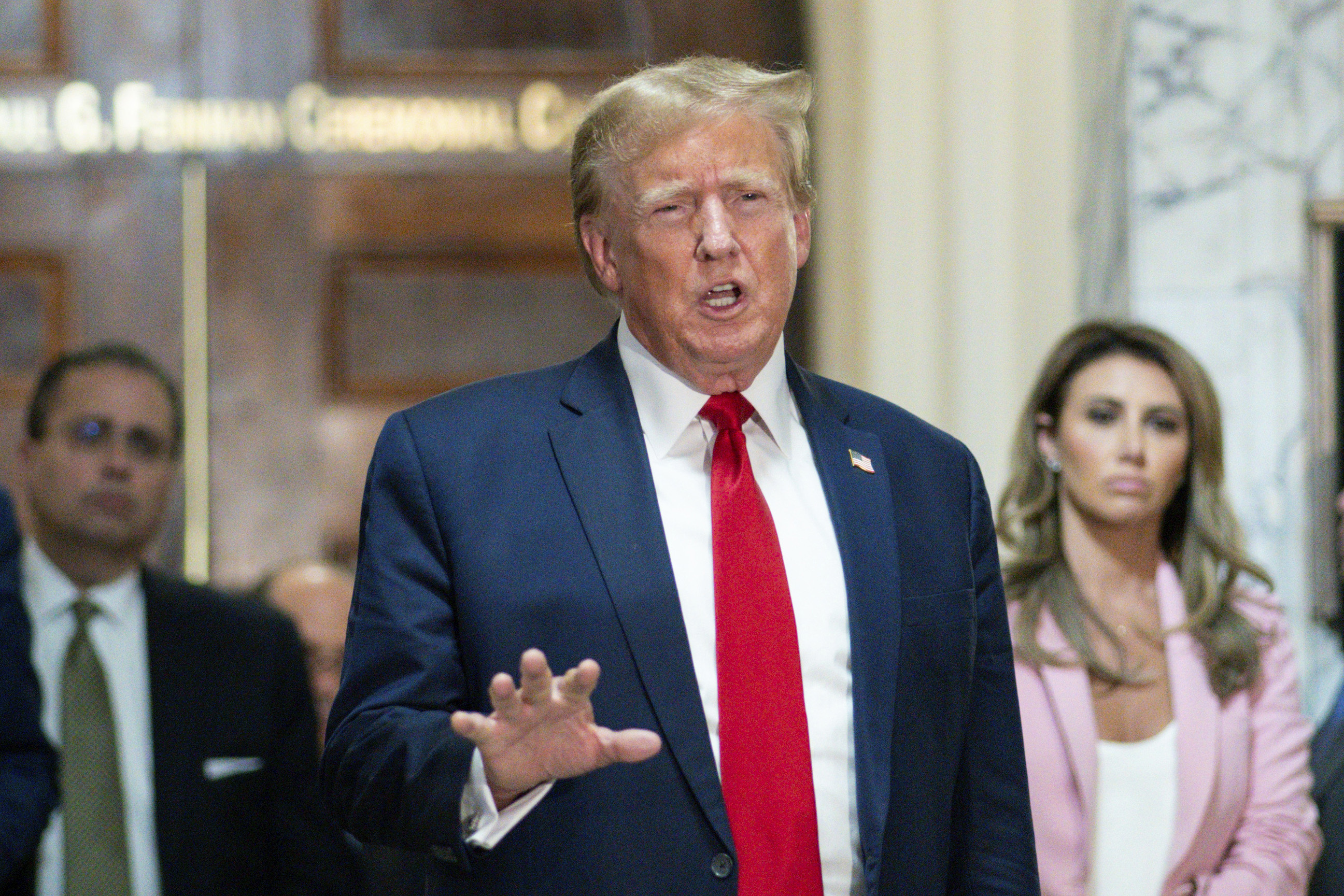President-elect Donald Trump is set to be sentenced in his hush money trial on Jan. 10, after the judge in the case released a surprise written decision Friday.
But will Trump face any jail time, or any punishment at all, as a result of the sentencing? Here's what we know so far.
The Trump team wanted the judge to dismiss the criminal case involving Stormy Daniels and hush money, seeking to have the verdict tossed on presidential immunity grounds and because of his impending return to the White House.
Get Tri-state area news delivered to your inbox.> Sign up for NBC New York's News Headlines newsletter.
But Judge Juan M. Merchan, who presided over the trial, instead dismissed the motions, saying he found "no legal impediment to sentencing" Trump. The judge wrote that it was "incumbent" on the court to do so before Inauguration Day.
“Only by bringing finality to this matter” will the interests of justice be served, Merchan wrote.
The judge scheduled the sentencing to occur just 10 days before the inauguration — leaving Trump on course to be the first president to take office convicted of felony crimes.
Merchan said in his decision that Trump does not have to show up in person. He can attend the sentencing virtually, if he chooses.
Will Trump face jail time?
Judge Merchan wrote he will not order the president-elect to be incarcerated. He said it seemed proper to make that fact known in advance that jail time will not be on the table.
Jail was a sentence he could have imposed in this case, with Trump convicted of 34 felonies, but he said that even the prosecutors conceded that jail no longer seems practical for a president-elect. Prosecutors acknowledged there should be some accommodation for his upcoming presidency, but they insisted the conviction should stand.
They suggested various options, such as freezing the case during his term or guaranteeing him a no-jail sentence. They also proposed closing the case while formally noting both his conviction and his undecided appeal — a novel idea drawn from what some state courts do when criminal defendants die while appealing their cases.
Merchan ruled that Trump’s current status as president-elect does not afford him the same kind of immunity granted to a sitting president and does not require that the verdict be set aside and the case dismissed -- a notion the judge described as “drastic” and “rare.”
Doing that “would undermine the Rule of Law in immeasurable ways," Merchan wrote. He opined that it wouldn't address the Supreme Court's concerns about presidential immunity, either.
The judge said in his written decision Friday that the most viable solution appeared to be an unconditional discharge.
What is an 'unconditional discharge?'
Judge Juan M. Merchan, who presided over Trump’s trial, signaled in a written decision that he'd sentence the former and future president to what's known as an unconditional discharge.
What does that entail? In short, it means the case gets dismissed if a defendant avoids rearrest — effectively meaning no punishment would be imposed. That includes any potential jail time, fines, or probation.
Merchan wrote that he sought to balance competing interests: Trump’s ability to govern “unencumbered” by the case, the U.S. Supreme Court's July ruling on presidential immunity, the public’s expectation “that all are equal and no one is above the Iaw,” and the importance of protecting the “sanctity of a jury verdict.”
“This court is simply not persuaded that the first factor outweighs the others at this stage of the proceeding,” Merchan wrote in an 18-page decision.
In declining to dismiss the case, Merchan emphasized that Trump was found guilty of 34 counts of falsifying business records by a unanimous jury — a bedrock principle he says in our nation's justice system.
Trump communications director Steven Cheung reiterated that the case, which Trump has long described as illegitimate, should be dismissed outright.
“There should be no sentencing, and President Trump will continue fighting against these hoaxes until they are all dead,” Cheung said in a statement.
The charges stemmed from an alleged scheme to hide a hush money payment to porn actor Stormy Daniels in the last weeks of Trump’s first campaign in 2016. The payout was made to keep her from publicizing claims she’d had sex with the married Trump years earlier. He says that her story is false and that he did nothing wrong.
After Trump’s Nov. 5 election, Merchan halted proceedings and indefinitely postponed the sentencing so the defense and prosecution could weigh in on the future of the case.
Trump is set to take office Jan. 20 as the first former president to be convicted of a crime and the first convicted criminal to be elected to the office. His conviction left the 78-year-old facing the possibility of punishment ranging from a fine or probation to up to four years in prison.




